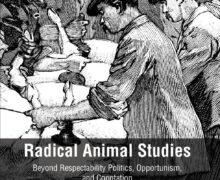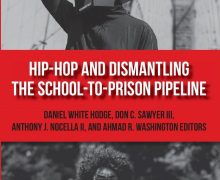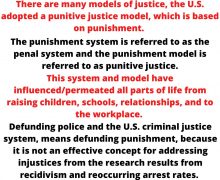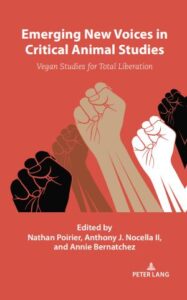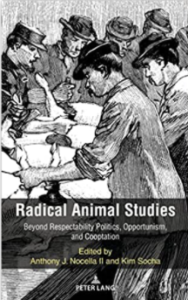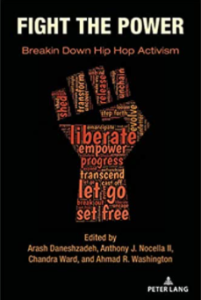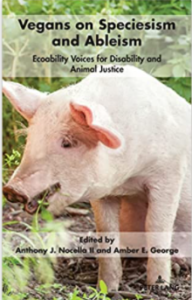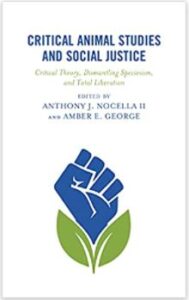ICAS’s Latest Book on Critical Animal Pedagogy
Most recently the Executive Directors of the Institute for Critical Animal Studies has published a collection of original work on the topic of critical animal pedagogy. This is the first book on the topic critical animal pedagogy. Please use this book in your classes and adopt it in your book clubs.
___________________________________________________
Education for Total Liberation: Critical Animal Pedagogy and Teaching Against Speciesism (Radical Animal Studies and Total Liberation Book 2)
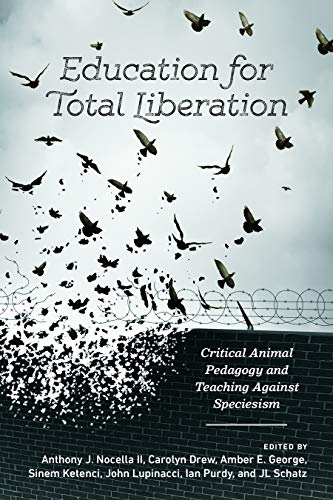
Education for Total Liberation is
a collection of essays from leaders in the field of critical animal
pedagogy (CAP). CAP emerges from activist educators teaching critical
animal studies and is rooted in critical theory as well as the animal
advocacy movement. Critical animal studies (CAS) argues for an
interdisciplinary approach to understanding our relationships with
nonhuman animals. CAS challenges two specific fields of theory: (1)
animal studies, rooted in vivisection and testing on animals in the hard
sciences and (2) human-animal studies, which reinforces a socially
constructed binary between humans and animals and adopts abstract
theoretical approaches. In contrast, CAS takes a progressive and
committed approach to scholarship and sees the exploitation of nonhuman
animals as interrelated with oppression of humans based on class,
gender, race, ability, sexuality, age, and citizenship. CAS promotes the
liberation of all animals and challenges all systems of domination. Education for Total Liberation is
appropriate for undergraduate and graduate level readers (and beyond)
who wish to learn from examples of radical pedagogical projects shaped
by CAS and critical pedagogy.
Contributing to this collection are Anne C. Bell, Anita de Melo, Carolyn Drew, Amber E. George, Karin Gunnarsson Dinker, Sinem Ketenci, John Lupinacci, Anthony J. Nocella II, Sean Parson, Helena Pedersen, Ian Purdy, Constance L. Russell, J.L. Schatz, Meneka Repka, William E. Shanahan III, and Richard J, White.
Reviews of the Book
“Primary education and the academy are powerful ideological agents that
justify and normalize the entangled oppression of humans and other
animals. This important CAS volume of powerful, transformative
strategies and techniques should be required reading for all educators
and justice advocates.”
David Nibert, Wittenberg University
“«Education
for Total Liberation» is timely, provocative, engaging, and
informative. The contributors ask us to rethink our relation to
ourselves, the natural environment, nonhuman animals, systems of
domination, and education. This is a wonderful book and a must-read!”
Jason Del Gandio, co-editor of «Spontaneous Combustion: The Eros Effect and Global Revolution»
“As
it becomes increasingly obvious that our planet is being murdered by
antiquated ideologies and beliefs (e.g., capitalism, speciesism, and
delusions of human supremacism), it is essential that these ideologies
and beliefs are deconstructed with sound theory and reconstituted with
alternative strategies of action. This book is an excellent mix of both
theory and action as it pertains to teaching the pedagogy of critical
animal studies.”
Mark Seis, Emeritus Professor of Sociology, Fort Lewis College
“A
truly powerful intersectional book dedicated to social justice
education. This anthology is international and dedicated to
collaborative, transformative, critical, and inclusive pedagogy. Read
this book if you are interested in advancing the pedagogical realm.”
Moneka Stevens, Save the Kids
“«Education
for Total Liberation» is a must-read for activists, students and
scholars. Finally, an entire book on critical animal pedagogy! This
important text calls for a radicalising of what the field of critical
animal pedagogy stands for and the different perspectives that exist
across the field in both theory and practice. What an exciting book!”
Lara Drew, member of the Executive Board of Directors of the Institute for Critical Animal Studies
“At
the intersections of education and action, this important collection
illuminates the importance of praxis to critical studies, offering
readers a variety of entry points into the increasingly important realm
of critical animal studies for liberation.”
Erik Juergensmeyer, editor of «Green Theory and Praxis Journal
About the Editors
The editors and contributing authors in this book are activist educators from around the globe and represent diverse critical perspectives contributing to Critical Animal Studies and the emerging and connected Critical Animal Pedagogies.
Anthony J. Nocella II, Ph.D., is Assistant Professor of Criminal Justice and Criminology at Salt Lake Community College.
Carolyn Drew holds a M.Ed. in adult education and is Director of Regions of the Institute of Critical Animal Studies.
Amber E. George, Ph.D., is Executive Director of Finance of the Institute for Critical Animal Studies.
Sinem Ketenci, MSW, is a social worker and a co-founder of the vegan clubs at Ryerson and Canterbury Universities.
John Lupinacci, Ph.D., is Assistant Professor at Washington State University.
Ian Purdy is a co-organizer of the open lecture series Animal Rights Academy at the University of Toronto.
J.L. Schatz is Lecturer in English and Feminist Evolutionary Theory at Binghamton University.


